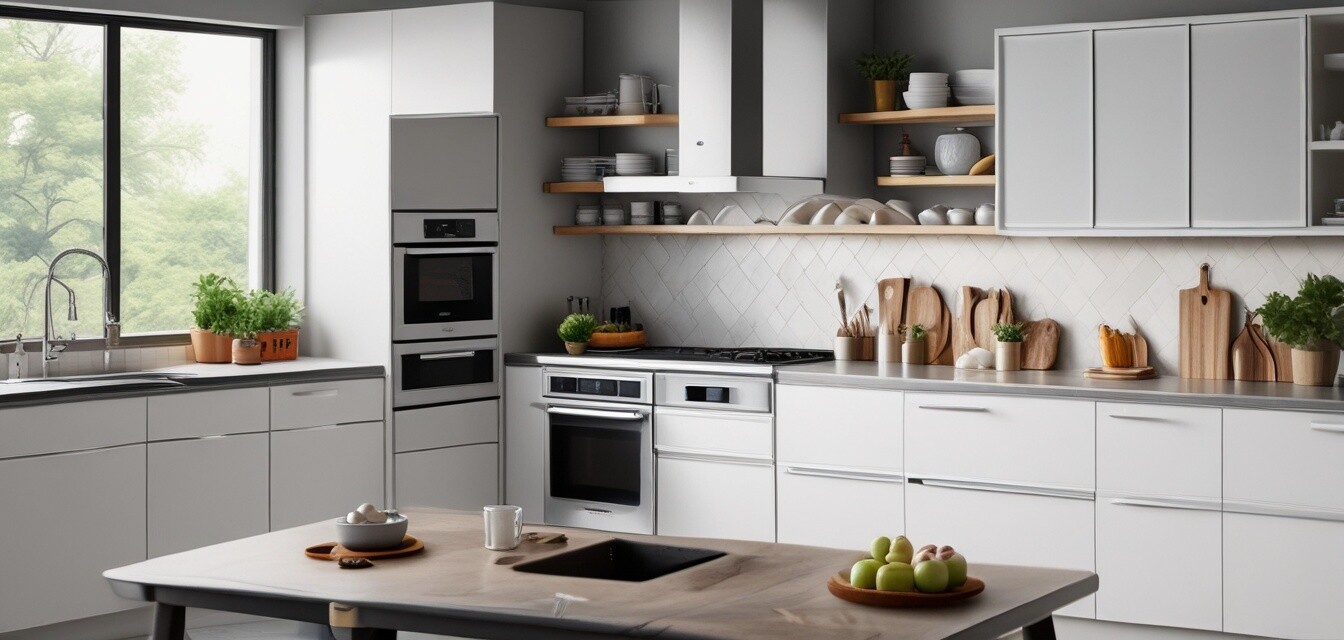
The impact of AI on meal planning
- AI is reshaping meal planning with personalized recipes.
- Smart kitchen appliances enhance cooking efficiency.
- Home cooks can save time and reduce food waste.
- AI helps in nutritional planning and dietary restrictions.
- Integration with grocery apps simplifies shopping.
In today's fast-paced world, balancing a busy schedule with healthy eating can be challenging. That's where artificial intelligence (AI) comes into play, revolutionizing meal planning and making it more effortless than ever through smart appliances and innovative apps. This article explores how AI is transforming the way we plan, prepare, and enjoy our meals.
How AI is transforming meal planning
AI technology enables users to automate and personalize their meal planning experience. From recommending recipes based on dietary preferences to generating shopping lists, AI systems analyze vast amounts of data and make tailored suggestions. Here are some ways AI is enhancing the meal prep process:
- Personalized recipe recommendations: AI apps can suggest meals based on personal preferences, restrictions, and even current inventory in the kitchen.
- Real-time nutritional analysis: Users can assess the nutritional content of their meals, ensuring a balanced diet.
- Dynamic grocery lists: AI tools automate grocery list creation based on selected recipes, streamlining the shopping process.
- Smart kitchen appliances: Devices like intelligent cooktops and smart ovens can adjust cooking times and temperatures based on recipes provided by AI systems.
Examples of AI applications in meal planning
The advancements in AI have led to the development of numerous applications that aid in meal planning. Here are a few examples:
| App/Appliance | Description | Key Features |
|---|---|---|
| Recipe Generators | AI-based platforms that suggest recipes based on available ingredients. | Ingredient recognition, dietary preference filters, meal customization. |
| Smart Refrigerators | Refrigerators equipped with inventory management and recipe suggestion features. | Inventory tracking, recipe recommendations, expiration alerts. |
| Meal Planning Apps | Applications that offer meal planning and grocery shopping lists. | Meal scheduling, nutritional breakdown, integration with delivery services. |
Benefits of AI in meal planning
The integration of AI into meal planning offers multiple benefits:
- Time-saving: Streamlines the planning process and minimizes prep time.
- Cost-effective: Prevents over-purchasing and reduces food waste through smart inventory management.
- Healthier choices: Encourages the selection of balanced meals tailored to individual health goals.
- Culinary exploration: Introduces users to diverse recipes and cuisines they might not try otherwise.
Challenges and considerations
While AI's influence on meal planning is largely positive, some challenges remain:
- Data privacy: Users need to consider sharing personal dietary preferences with apps.
- Dependence on technology: Over-reliance on AI-generated suggestions can dilute creativity in cooking.
- Integration issues: Compatibility between different smart appliances and applications can lead to confusion.
Pros
- Increased efficiency in meal planning
- Tailored suggestions based on personal preferences
- Enhanced nutritional tracking
- Reduction in food waste
Cons
- Privacy concerns with data sharing
- Potential over-dependence on technology
- Interoperability issues with various devices
Future of AI in meal planning
The role of AI in meal planning is set to expand even further. As technology advances, we can expect:
- More intuitive cooking assistants that can offer real-time guidance while cooking.
- Enhanced food inventory management systems that predict expiration and use ingredients efficiently.
- Greater integration with smart home systems for a cohesive kitchen experience.
Conclusion
AI is certainly paving the way for a new era of meal planning, making it easier, healthier, and more efficient for everyone. As smart kitchen appliances and apps continue to evolve, home cooks can look forward to a seamless cooking experience. For those eager to explore the world of AI and smart kitchen technology, check out our other articles on smart kitchen buying guides, smart ovens, and Bluetooth-enabled appliances.
Stay tuned to our blog for the latest kitchen technology news, particularly on how AI is shaping the future of cooking!